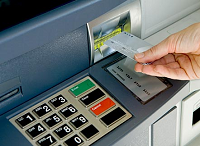Choosing a bank in Canada is a fairly straightforward process, similar to what you might find with major banks worldwide. Apart from obvious considerations like proximity of bank branches to where you live or work, there are a few factors to consider. It’s important to do your research and choose wisely, as you don’t want to be hopping around from bank to bank.
Think of it this way: sure, it’s great to have a bank that offers you no interest and no charges, but it doesn’t save you money if it’s 30 minutes out of the way. It’s small factors like this that we often overlook.
Reputation Counts for Something
Thankfully, there is a great deal of information available about any of Canada’s many banks. Gathering information about each prospective bank’s customer service record is a good place to start. You can do this by asking friends and co-workers about their experiences, or by visiting a consumer rating website such as J.D. Power . Here, you’ll find results from recent consumer surveys regarding overall trends within the banking industry, as well as statistical comparisons and rankings of different banks in the country.
Whichever way you choose to gather this data, try not to focus too much on any particular opinion. Instead, aim for a general sense of how the bank tends to treat its customers. For example, hearing a number of complaints about the same issue should be a red flag, as this indicates the bank is slow to react to ongoing problems.
Pesky Extra or Hidden Fees
 Fees are another important factor, as you don’t want to be stuck with a bank that charges you for every little thing. Do they charge a monthly service fee? What is the cost for occasional services you might need, such as wire transfers? Bankrate Canada is a great and free tool that compares rates of a number of products and services at a variety of banks across the country. Visit Bankrate here to check it out.
Fees are another important factor, as you don’t want to be stuck with a bank that charges you for every little thing. Do they charge a monthly service fee? What is the cost for occasional services you might need, such as wire transfers? Bankrate Canada is a great and free tool that compares rates of a number of products and services at a variety of banks across the country. Visit Bankrate here to check it out.
Also, make sure to find out about ATM fees, as these can quickly add up also. There may be extra charges for ATM withdrawals made outside of your bank’s network, and there are sometimes extra foreign fees as well. Try to envision a realistic assessment of your lifestyle, and how these fees might apply to you.
Online banking
 Online banking is an increasingly versatile tool, helping clients avoid the need to find a physical bank branch or to wait in line for a simple transaction. Many of today’s typical banking transactions can be done with just a few clicks: at any hour, from the comfort of your own home, and most importantly, in whatever you desire to wear.
Online banking is an increasingly versatile tool, helping clients avoid the need to find a physical bank branch or to wait in line for a simple transaction. Many of today’s typical banking transactions can be done with just a few clicks: at any hour, from the comfort of your own home, and most importantly, in whatever you desire to wear.
Some banks have invested a lot into this digital option, providing their customers with a fast, easy interface. Other banks have marginalized online banking, focusing their attention elsewhere. Depending on what you’re looking for, this might be one of the biggest differentiating factors you will encounter.
Work Within Your Network
Finally, check with your employer to find out if they have a special relationship with a particular bank. Companies sometimes arrange limited-fee or even free banking with a certain bank for their employees, and this convenience may be too good to pass up. If you’re a college student, keep in mind that universities sometimes do this as well. It’s worth it to ask around.
Do you have any tips or tricks? Let us know by leaving a comment. Trust me, there’s no pesky hidden fees for leaving one.
This article was written by Jeff a friend of Vouchercodes.ca who has a real talent on watching the pennies. Don’t hesitate to submit to us any article that might be helpful to the community! Thanks.
